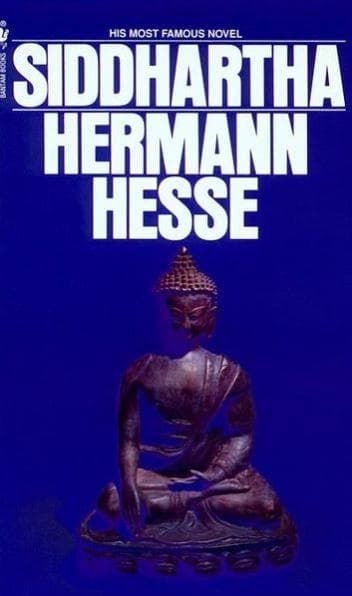
Book Review Summary: Siddhartha
Introduction
Hermann Hesse's classic novel, "Siddhartha," has captivated readers for generations. In this story, a wealthy Indian Brahmin named Siddhartha embarks on a journey to seek spiritual fulfillment. Hesse weaves together Eastern and Western philosophies, creating a unique vision of life's struggles and the search for meaning. The book has garnered praise for its profound wisdom, relatable characters, and powerful messages. In this article, we will explore the book's themes, analyze readers' opinions, and discuss why it is recommended or not recommended.
About Hermann Hesse
Hermann Hesse was a German-born Swiss writer known for his exploration of the human condition. He wrote numerous works, including "Siddhartha" (1922) and "Steppenwolf" (1927), which delve into the individual's search for wholeness and meaning in life. Hesse won the Nobel Prize for Literature in 1946, recognizing his significant contributions to literature. Throughout his career, Hesse gained popularity and influenced generations of readers and thinkers.
Analysis of Views
-
Wisdom and Relatability: Many readers appreciate the book's profound wisdom and its ability to resonate with their own experiences. The characters' struggles and realizations evoke a sense of familiarity, making the book relatable to a wide audience.
-
Ordinary-ness: Some readers initially found the book lacking depth or being ordinary. However, upon reevaluating the book over time, they realized that its ordinariness is what makes it exceptional. It portrays the journey of a common man, highlighting the universal human experiences of ambition, greed, possessiveness, lust, lying, and more.
-
Spiritual Journey: The book is often praised for its exploration of spiritual enlightenment. Readers appreciate the depiction of Siddhartha's quest for wisdom and the various stages he goes through. The journey is seen as a profound and transformative experience that resonates with readers seeking personal growth.
-
Realistic Depiction: Many readers appreciate the realistic portrayal of Siddhartha's journey. Hesse draws on his own experiences and incorporates elements of Buddhism, Hinduism, and other philosophies to create a believable narrative. The book's authenticity adds depth to the story and enhances its impact on readers.
-
Inspirational and Life-Changing: Some readers claim that "Siddhartha" has had a profound impact on their lives. They appreciate the book's ability to inspire self-reflection and personal transformation. The book's messages about finding one's own path and embracing imperfections resonate with readers seeking meaning in their lives.
Reasons for Recommendation
-
Profound Wisdom: The book offers profound wisdom about life, spirituality, and personal growth. Readers appreciate the insights provided by Siddhartha's journey and find them thought-provoking and transformative.
-
Relatability of Characters: The characters in the book are relatable, representing common human experiences. Readers find it easy to connect with Siddhartha and his struggles, making the book more engaging and impactful.
-
Ordinary-ness as Exceptional: While some readers initially found the book ordinary, they come to appreciate its ordinariness as a strength. The portrayal of Siddhartha as a common man adds depth to the story and makes it accessible to a wide audience.
-
Spiritual Journey: The exploration of spiritual enlightenment in the book resonates with readers seeking personal growth and self-discovery. The journey of Siddhartha provides a framework for understanding one's own path and finding meaning in life.
-
Realistic Depiction: The realistic portrayal of Siddhartha's journey adds authenticity to the story, making it more impactful for readers. The book's ability to capture the essence of human experiences makes it a compelling read for those seeking a deeper understanding of life's challenges and triumphs.
Reasons for Not Recommendation
-
Lack of Depth: Some readers find the book lacking in depth or feeling extra-ordinary. They feel that it lacks the excitement or intensity that other books may offer, making it less engaging for them personally.
-
Ordinary-ness as a Drawback: While some readers come to appreciate the ordinariness of "Siddhartha," others find it a drawback. They feel that the book's focus on common human experiences may limit its appeal to those seeking more adventurous or extraordinary stories.
Conclusion
"Siddhartha" by Hermann Hesse is a classic novel that has captivated readers with its profound wisdom, relatable characters, and exploration of spiritual enlightenment. The book's realistic portrayal of Siddhartha's journey resonates with readers seeking personal growth and self-discovery. While some readers find it lacking in depth or excitement, others appreciate its ordinariness as a strength that adds depth to the story. Overall, "Siddhartha" is recommended for those seeking a thought-provoking exploration of life's struggles and the search for meaning in a world filled with both ordinary and extraordinary experiences.